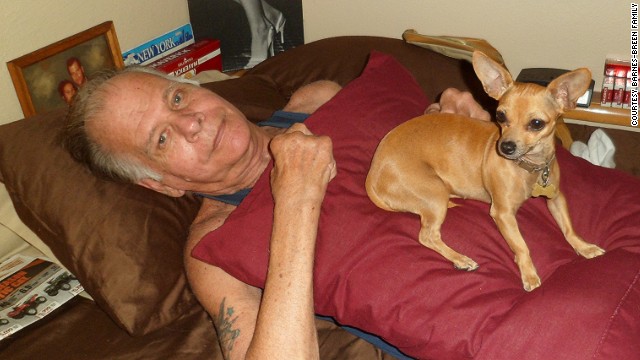
Deaths tied to VA hospital's secret list
(CNN)
The
secret list was part of an elaborate scheme designed by Veterans
Affairs managers in Phoenix who were trying to hide that 1,400 to 1,600
sick veterans were forced to wait months to see a doctor, according to a
recently retired top VA doctor and several high-level sources.
For six months, CNN has been reporting on extended delays in health care appointments
suffered by veterans across the country and who died while waiting for
appointments and care. But the new revelations about the Phoenix VA are
perhaps the most disturbing and striking to come to light thus far.
Internal
e-mails obtained by CNN show that top management at the VA hospital in
Arizona knew about the practice and even defended it.
Dr.
Sam Foote just retired after spending 24 years with the VA system in
Phoenix. The veteran doctor told CNN in an exclusive interview that the
Phoenix VA works off two lists for patient appointments:
There's
an "official" list that's shared with officials in Washington and shows
the VA has been providing timely appointments, which Foote calls a sham
list. And then there's the real list that's hidden from outsiders,
where wait times can last more than a year.
Deliberate scheme, shredded evidence
"The
scheme was deliberately put in place to avoid the VA's own internal
rules," said Foote in Phoenix. "They developed the secret waiting list,"
said Foote, a respected local physician.
The VA requires its hospitals to provide care to patients in a timely manner, typically within 14 to 30 days, Foote said.
According
to Foote, the elaborate scheme in Phoenix involved shredding evidence
to hide the long list of veterans waiting for appointments and care.
Officials at the VA, Foote says, instructed their staff to not actually
make doctor's appointments for veterans within the computer system.
Instead,
Foote says, when a veteran comes in seeking an appointment, "they enter
information into the computer and do a screen capture hard copy
printout. They then do not save what was put into the computer so
there's no record that you were ever here," he said.
According
to Foote, the information was gathered on the secret electronic list
and then the information that would show when veterans first began
waiting for an appointment was actually destroyed.
"That
hard copy, if you will, that has the patient demographic information is
then taken and placed onto a secret electronic waiting list, and then
the data that is on that paper is shredded," Foote said.
"So
the only record that you have ever been there requesting care was on
that secret list," he said. "And they wouldn't take you off that secret
list until you had an appointment time that was less than 14 days so it
would give the appearance that they were improving greatly the waiting
times, when in fact they were not."
I
feel very sorry for the people who work at the Phoenix VA. They all
wish they could leave 'cause they know what they're doing is wrong.
Dr. Sam Foote
Dr. Sam Foote
Foote
estimates right now the number of veterans waiting on the "secret list"
to see a primary care physician is somewhere between 1,400 and 1,600.
Doctor: It's a 'frustrated' staff
"I
feel very sorry for the people who work at the Phoenix VA," said Foote.
"They're all frustrated. They're all upset. They all wish they could
leave 'cause they know what they're doing is wrong.
"But
they have families, they have mortgages and if they speak out or say
anything to anybody about it, they will be fired and they know that."
Several
other high-level VA staff confirmed Foote's description to CNN and
confirmed this is exactly how the secret list works in Phoenix.
Foote
says the Phoenix wait times reported back to Washington were entirely
fictitious. "So then when they did that, they would report to
Washington, 'Oh yeah. We're makin' our appointments within -- within 10
days, within the 14-day frame,' when in reality it had been six, nine,
in some cases 21 months," he said.
Thomas Breen was so proud of his time in the Navy that he wanted to be treated only at a VA facility, his family says.
In the case of 71-year-old Navy veteran Thomas Breen, the wait on the secret list ended much sooner.
"We
had noticed that he started to have bleeding in his urine," said Teddy
Barnes-Breen, his son. "So I was like, 'Listen, we gotta get you to the
doctor.' "
Teddy says
his Brooklyn-raised father was so proud of his military service that he
would go nowhere but the VA for treatment. On September 28, 2013, with
blood in his urine and a history of cancer, Teddy and his wife, Sally,
rushed his father to the Phoenix VA emergency room, where he was
examined and sent home to wait.
"They
wrote on his chart that it was urgent," said Sally, her father-in-law's
main caretaker. The family has obtained the chart from the VA that
clearly states the "urgency" as "one week" for Breen to see a primary
care doctor or at least a urologist, for the concerns about the blood in
the urine.
"And they sent him home," says Teddy, incredulously.
Sally
and Teddy say Thomas Breen was given an appointment with a
rheumatologist to look at his prosthetic leg but was given no
appointment for the main reason he went in.
.
.
 Veterans dying waiting for healthcare
Veterans dying waiting for healthcare Are we fulfilling our promise to veterans?
Are we fulfilling our promise to veterans?








No comments:
Post a Comment
Hello and thank you for visiting my blog. Please share your thoughts and leave a comment :)